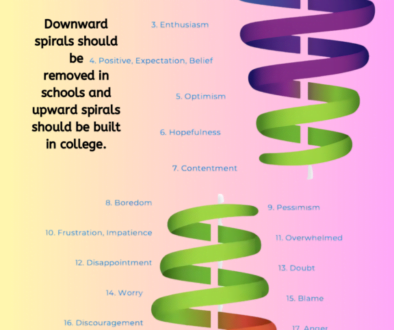Parenting secret for elite Gen Z college admission
Gen Z college admission is driven more by personality than by profile
Generation Z (born 1996 onwards), also known as Gen Z, iGen, or post-millennials, have been plied with focus. Their experiences, their views, their technological expertise, their penchant for cooperation, as well as their outlook of others all of it has been continuously reported since they were born.

They intend to take care of the problems of people which are more of societal issues such as atmosphere, social justice, as well as civil rights.
Elite Gen Z college admission needs informed parental guidance
What about GenZ’s moms and dads? What are they like? Exactly how do parents factor into the college decisions of this dynamic generation? Let us take a glance at Gen Z’s parents, and also how to collaborate with them.
Gen Zers are much less likely to leave secondary school and most likely to join college compared to generations that came before them.
Since 2018, 57 percent of Gen Zers are in secondary school, they were registered in a two-year or four-year university, as compared to 52 percent of millennials in 2003 and also 43 percent of Generation X in 1987.
In Addition, Gen Zers are more likely to have a college-educated parent contrasted to previous generations. Since 2019, 44 percent of Gen Zers ages 7 to 17 were living with a parent who had at the very least a bachelor’s degree, a difference of 11 % as compared to millennials at the same age (33 percent of them had a parent who went to university).
They’re the initial social generation to have grown up with access to innovation from a young age, frequently called “electronic locals”, who are “constantly online”. Gen Zers make use of Snapchat, TikTok, and also Instagram, according to Expert Knowledge.
Gen X (parents of GenZ) must acknowledge early schedule planning for Gen Z to acquire elite college admission
Elite Gen Z college admission will be driven by social and economic impact the most
Gen Z has been frequently referred to as the “loneliest generation” due to their hours spent online, which constructs sensations of isolation and also anxiety.
Ultimately, this generation may invest less time working with their social abilities and building meaningful relationships with their peers. However, their time spent online additionally suggests that they are wise customers and take a look at their acquisitions through the lens of their values and personal preferences based on those values.
What does this all boil down to? when does it concerns making college decisions? Parents must understand that GenZ wants to boost culture in social and dynamic ways.
They wish to select good majors however they’re additionally economic crisis youngsters, and that’s a very great balance for them. This balancing idea of purpose and monetary stability all at the same time, which can impacts their significant choice and university selection.
Gen Z college admission are centric around safety, security and self governing parenting
Many participants of Generation Z are youngsters of Generation X. Generation X, born between 1965 and also 1980, experienced a collection of crises that likely shaped the generation’s experiences, consisting of the following: the loss of the Berlin Wall Surface, the Challenger catastrophe, the Jonestown mass self-destruction, the Watergate rumour, the Lockerbie trip battle, the Three Mile Island disaster, the Rodney King incident etc.
Gen X ended up being latchkey kids that yearned for safety and security but eventually became self-governing, and they’re raising their youngsters in this way also. “As far as engagement, one research suggests that there is a change from helicopter parents to moms and dads as co-pilots.
Helicopter parents, who are excessively involved or overprotective or have too much passion in the life of their child or youngsters, in the past they have been excessively involved in their kids choices naturally. Studies suggest that while some Gen X parents fall into that classification, it’s not the best summary of the leading parent culture any longer.
The moms and dads are co-pilots and their kids actually look for assistance from them.” In fact some kids might say – “Mother, I’m thinking about about these two majors, and also the moms and dad will reply, ‘Well, what do you assume?'” Which means that parents want their kids to come up with answers and if the child is confused then its a panic situation for parents for sure, hence students are the ones driving the decision, at the very least a lot more so than the past.
“Youths are shaped by their influences and they lug those worths with them. You cannot take a person out of the context. For example, similar to Gen X has been affected by their experiences, Gen Z has also been impacted by certain global occasions, such as the COVID-19 pandemic, the economy.
Elite Gen Z college admission post pandemic needs mental health detecting and self aware parenting
Some experts believe that misinformation has exploded during the pandemic. Because of an absence of social communication, parents relied upon social media sites, on the internet moms and dad groups particularly.
Parents are attempting to maintain their kids’ head over water and also their very own head above water and trying to make use of social networks to navigate a difficult process, parents are focused on their child’s mental wellness.
Anxiousness is common with the students. It has to do with dealing with the parents to talk with them about just exactly how colleges sustain students and their needs.
Elite Gen Z college admission cannot be achieved without insightful parenting
Considering the above factors, it is only logical to make insightful college decisions and having a sound strategy or college plan for Gen Z kids, meaning to say that authentic data is more important than ever, accurate assessments on what the family and child wants.
College decisions for Gen Z are not just academic prospects anymore, rather they are seeking avenues in form of a university environment which will fulfil entire family’s desire. There is a high change that major Gen Z kids would want to achieve in life, but because they do not know the way they will show agitation and frustration. Hence college decisions should incorporate subjective social and mental health parameters as well.


